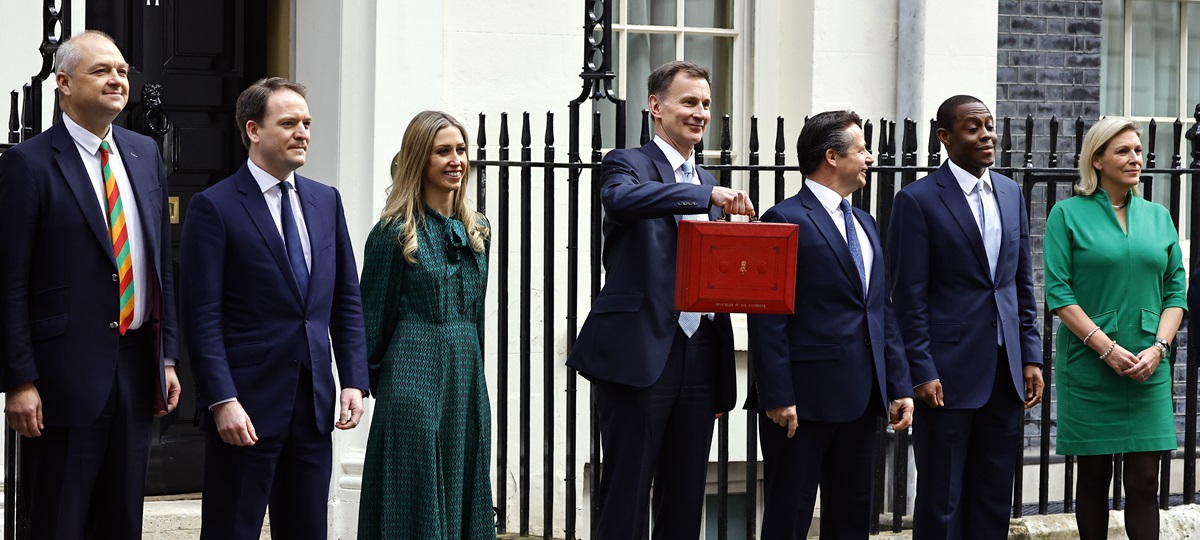
Chancellor Jeremy Hunt delivered the government’s 2024 Spring Budget on 6 March. Here’s a round-up of measures and announcements relevant to businesses in the creative industries.
During his Budget speech, Jeremy Hunt referenced the creative industries. He said:
“We have become Europe’s largest film and TV production centre with Idris Elba, Keira Knightley and Orlando Bloom all filming their latest productions here.
“Studio space in the UK has doubled in the last three years. At the current rate of expansion, we will be second only to Hollywood globally by the end of 2025.”
In the full Budget document, the government said it is:
“…committed to the success of creative industries, a sector that contributed £125 billion in gross value added (GVA) in 2022 and employs 2.4 million people across the UK.
“In June 2023, the government published the [creative industries] sector vision setting out ambitions to grow the sector by a further £50 billion in GVA and support an additional 1 million jobs.”
The Budget included several announcements specific to the creative industries:
A new UK independent film tax credit (IFTC) will be introduced at a rate of 53% on qualifying film production expenditure. It will be available for films with budgets under £15m that meet the requirements of a new British Film Institute (BFI) test.
Films will need to meet at least one of the following conditions:
Productions will be able to make claims from 1 April 2025 if the film started principal photography from 1 April 2024.
Jay Hunt, BFI chair, said:
“The government’s new tax credit is a game changer for UK filmmakers, creating jobs and ensuring great Britsh stories continue to be told. By introducing the uplifted rate, the prime minister and the chancellor are fuelling the growth of the wider screen sector that contributes billions to the UK economy.”
Ben Roberts, BFI chief executive, added:
“This is a dramatic moment for UK film, and the most significant policy intervention since the 1990s. The positive impact will be felt across our industry, and through all the new films that audiences will get to enjoy.
The films we make are vital to our culture expression and creativity – they reflect a diverse and global Britain, and build careers – and we’re grateful to government, the DCMS, the industry and our friends at Pact for working together to realise this historic initiative.”
Following a consultation at Autumn Statement 2023, the credit rate for visual effects costs in film and high-end TV will be rise by 5% to 39% from April 2025. The 80% cap will be removed for qualifying expenditure for visual effects costs.
A 40% reduction on gross business rates will be provided to eligible film studios in England until 2034. The government said the relief will be implemented “as soon as possible” with bills backdated to 1 April 2024.
From 1 April 2025, the rates of theatre tax relief (TTR), orchestra tax relief (OTR) and museums and galleries exhibitions tax relief (MGETR) will be permanently set at 40% (for non-touring productions) and 45% for touring productions.
Funding of £26.4m will be provided to upgrade the National Theatre’s stages and infrastructure.
The following are announcements not specific to the creative industries but are of interest to businesses in the sector.
Freelancers make up a third of the creative industries so this measure is very relevant to the sector.
From 6 April 2024, the main rate of Class 4 National Insurance Contributions (NICs) for the self-employed will be reduced from 9% to 6%.
The government claimed that combined with the abolition of the requirement to pay Class 2 NICs announced in the 2023 Autumn Statement, the measure will save an average self-employed person on £28,000 around £650 a year.
From 6 April 2024, the main rate of employee NICs will be cut by 2p from 10% to 8%.
The government claimed that combined with the 2p cut announced at Autumn Statement 2023, the measure will save the average worker on £35,400 over £900 a year.
The level at which businesses must register for valued added tax (VAT) will increase from £85,000 to £90,000 from 1 April 2024. The government said around 28,000 businesses will benefit in 2024-25 from no longer being VAT registered.
The deregistration threshold, at which businesses can deregister from VAT, will increase from £83,000 to £88,000.
The government’s Recovery Loan Scheme, which launched in 2021 to support businesses to recover from the impact of the COVID-19 pandemic, will be extended to 31 March 2026. It will be renamed the Growth Guarantee Scheme.
The government guarantees to the lender up of 70% of funding provided to businesses through the scheme. Loans of up to £2m are available for businesses in Great Britain turning over up to £45m. For Northern Ireland businesses, the maximum loan is £1m.
Full expensing allows companies to claim 100% capital allowances on qualifying plant and machinery investments. In the 2024 Budget, the government said it will publish draft legislation and seek to extend the scheme to assets for leasing “when fiscal conditions allow”.
Bristol Creative Industries is the membership network that supports the region's creative sector to learn, grow and connect, driven by the common belief that we can achieve more collectively than alone.